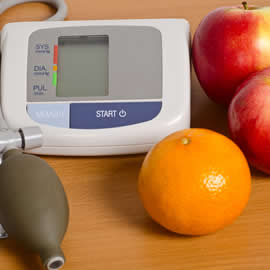 In Fort Myers, there are all sorts of reasons as to why you might want to lose weight. For some people, fitting into an old pair of jeans or looking your best for an upcoming event are at the top of your mind. But when you think about what really matters in life, and why losing weight is the right decision not just for you but for your entire family, too, the reason that really comes to heart is your heart itself.
In Fort Myers, there are all sorts of reasons as to why you might want to lose weight. For some people, fitting into an old pair of jeans or looking your best for an upcoming event are at the top of your mind. But when you think about what really matters in life, and why losing weight is the right decision not just for you but for your entire family, too, the reason that really comes to heart is your heart itself.
Obesity impacts heart health in a variety of negative ways. One of these ways is via your blood pressure. Your blood pressure is the reading of the strength at which your heart is able to pump blood throughout your body. You’ve listened to your heart beat before. You can probably imagine the low thud that makes the heart so recognizable and powerful. That thud tells you everything that you need to know about blood pressure. Each thud marks the heart pushing at top capacity to ensure that blood is circulating throughout your entire body. In between each thud your heart is still working, but not quite so hard. A measurement of your blood pressure gets a reading of the heart in each of these states: one working hard, and one somewhat resting.
This results in two numbers:
- Systolic blood pressure: The measurement of your heart pumping blood at its peak, top capacity.
- Diastolic blood pressure: The measurement of your heart pumping blood at its resting place.
When reported, the systolic number is always on top and is always larger than the diastolic blood pressure. In an ideal healthy individual with premium blood pressure numbers, the final report will show systolic blood pressure of 120 or below and diastolic blood pressure of 80 or below. Anything higher on either of these parts and you are at risk of developing high blood pressure, also known as hypertension.
Hypertension is a chronic health concern that reflects the fact that the heart is working overtime in pumping blood throughout the body. Put simply, this is bad news for your heart health. By making changes to your diet you can give your heart a much needed rest, making it easier for blood to circulate throughout your body and helping you to feel healthier.
Diet and Hypertension
The best way to improve blood pressure is by making changes to your diet. Luckily, many of the changes that you are already encouraged to make following weight loss surgery are the exact same changes that would be asked of anyone looking to improve their blood pressure levels.
This includes dietary changes like:
- Reducing sugar and fat intake
- Eating smaller portions
- Increasing consumption of nutrient dense foods like vegetables
- Switching to low-fat dairy products
Many people experience significant improvements to their blood pressure following weight loss surgery by making healthy changes to their diet and eating habits. If your blood pressure is incredibly high, or if you are struggling with chronic hypertension, then talk to your weight loss surgeon about the ways that bariatric surgery may be able to improve your heart health.